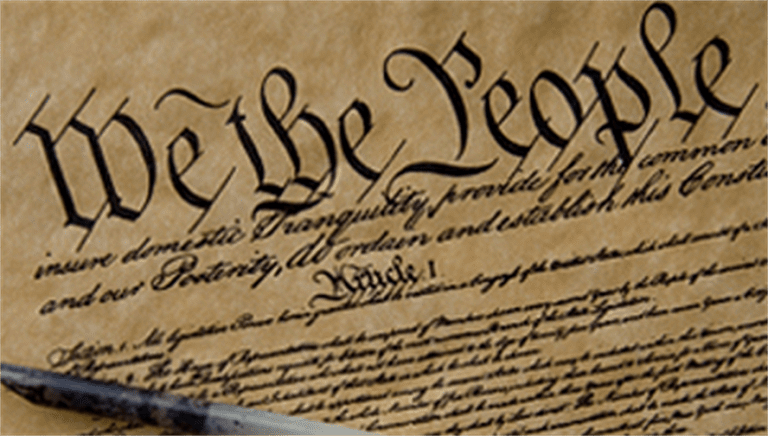In the meantime, we might wonder why a president has the authority to set tariffs and thus regulate foreign trade. Isn’t a tariff a tax? How is it that the executive branch can unilaterally impose a tax? Don’t taxes have to be approved by Congress?
In fact, doesn’t the Constitution specifically give the legislative branch authority over foreign trade? The very first article of the Constitution reads, “The Congress shall have Power To lay and collect Taxes, Duties, Imposts and Excises,” and “To regulate Commerce with foreign Nations” (I. 8. 1, 3). So how can the president, for better or worse, just raise tariffs?
An editorial in the conservative Washington Examiner explains what happened.
In 1962, Congress passed “The Trade Expansion Act,” which President Kennedy signed into law. Section 232 of that bill allows the president to impose tariffs if they are necessary for national security.
President Trump is invoking national security as the reason for imposing the tariffs on certain foreign imports. Our national security needs a ready source of aluminum, so the reasoning goes, so we need to protect the U.S. aluminum industry from foreign competition. You can, of course, apply that reasoning to just about any product.
This was not the intent of the law, and I would think that a business hurt by the trade war could bring this to court.
But, as the editorial points out, the main problem is not with the president. Congress has been ceding its powers to the Executive Branch for decades. Presidents of both parties have taken advantage of a Legislative Branch that is content to surrender its responsibilities on hard questions.
As a result, regulations from the executive branch bureaucracy have been replacing democratically-enacted laws. Executive orders have been bypassing the democratic process. Not only has the central government become stronger and stronger, but that power is being embodied in a single executive, rather than distributed among elected representatives.
More serious than a trade war are shooting wars, and Congress has almost completely abdicated its Constitutional responsibility, also under Article I, “To declare War, grant Letters of Marque and Reprisal, and make Rules concerning Captures on Land and Water” (I.8.11). (Notice that this provision goes beyond “declared wars” to also cover less all-encompassing military actions.)
Instead, Congress has given this, perhaps the most consequential government power, to the president with the “War Powers Act.”
Sens. Bob Corker (R-Tenn.), and Pat Toomey (R-Pa.) have introduced a bill that would require Congressional approval of presidentially-imposed tariffs.
If it could pass and survive a veto, this would be one step in restoring the Constitutional separation of powers.
But, you might be thinking, Congress is such a mess! Better for now that a president make these big decisions. It’s true that Congress is a mess. That’s because it hasn’t been doing its job.
Photo: U.S. Air Force illustration/James Borland, Public Domain













